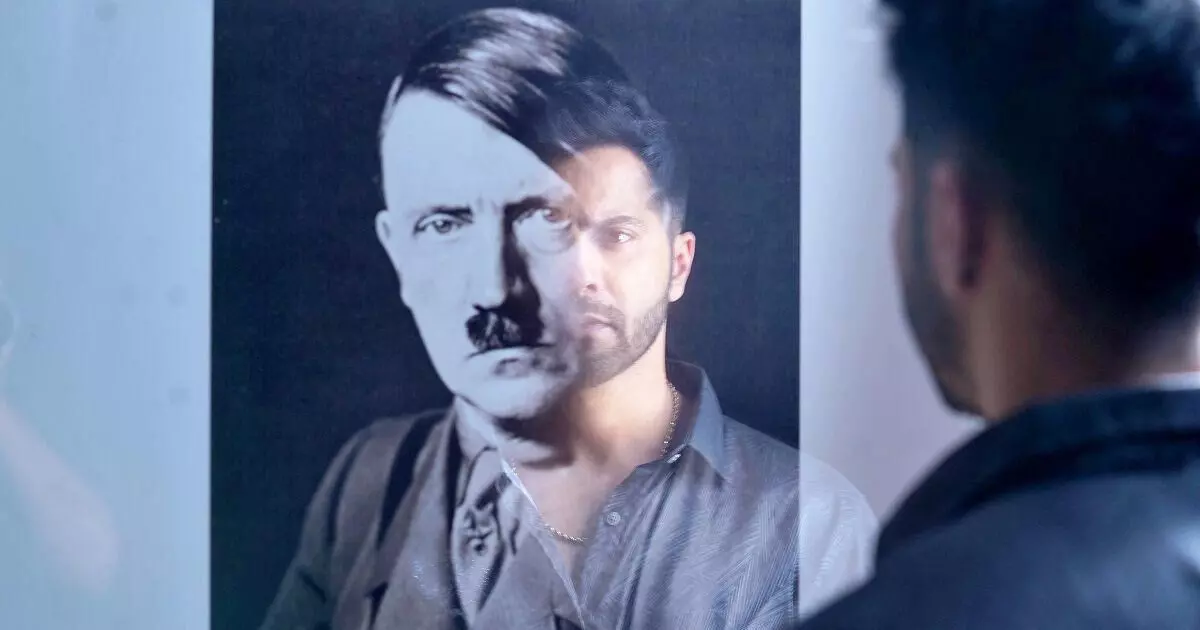
Auschwitz not a metaphor: Jewish human rights group slams Bawaal for demeaning Holocaust
text_fieldsNitesh Tiwari’s Bawaal, starring Varun Dhawan and Janhvi Kapoor, has landed in soup, for drawing inspiration from Holocaust and using it as a metaphor for a scene.
Now, a Jewish organisation has written an open letter to Amazon Prime asking the streaming service to take down the movie from its platform for its “insensitive portrayal’ of the Nazi Holocaust.
The Simon Wiesenthal Centre (SWC), a Jewish human rights NGO, dedicated to the memory of the victims of the Holocaust, says that the film trivialises the "suffering and systematic murder of millions of victims of the Nazi Holocaust”. SWC defends the safety of Jews worldwide and calls out anti-Semitism and hate.
Many in India have also criticised ‘Bawaal’ for the way it has used the Holocaust in the romantic drama.
The film’s lead characters portrayed by Varun Dhawan and Janhvi Kapoor, travel to World War 2 sites and visit a gas chamber in Auschwitz, Nazi Germany's infamous concentration camp, where countless Jews were killed. They are shown inside a gas chamber in a dream-like sequence with visuals where they are struggling to breathe.
In one of the scenes, Janhvi’s character Nisha says, “We’re all a little like Hitler, aren’t we?” when speaking about human greed. And in another scene, the character is heard saying, “Every relationship goes through their Auschwitz” implying that every relationship has its struggles.
 Also Read: How Shah Rukh became ‘Jeetender Kumar Tulli’ for Arya Samaj wedding with Gauri
Also Read: How Shah Rukh became ‘Jeetender Kumar Tulli’ for Arya Samaj wedding with Gauri
The SWC has slammed the movie 'due to its outlandish abuse of the Nazi Holocaust as a plot device'.
"Directed by well-known Indian filmmaker Nitesh Tiwari, the film’s storyline which is set in contemporary times, leads to scenes in which the protagonists enter a gas chamber in Auschwitz and are suffocated while wearing striped clothing. Hitler is used as a metaphor in the movie for human greed, with the main protagonist, saying to his wife, ‘We’re all a little like Hitler, aren’t we?”, the statement said.
“Auschwitz is not a metaphor. It is the quintessential example of Man’s capacity for Evil. By having the protagonist in this movie declare that ‘Every relationship goes through their Auschwitz,’ Nitesh Tiwari, trivialises and demeans the memory of 6 million murdered Jews and millions of others who suffered at the hands of Hitler’s genocidal regime”, SWC' Associate Dean and Director of Global Social Action Rabbi Abraham Cooper, said in the open letter.
“If the filmmaker’s goal was to gain PR for their movie by reportedly filming a fantasy sequence at the Nazi death camp, he has succeeded. Amazon Prime (Prime Video) should stop monetising Bawaal by immediately removing this banal trivialisation of the suffering and systematic murder of millions of victims of the Nazi Holocaust", the statement said.
When the film was released last week, social media users shared their reactions drawing an insensitive parallel between the lead pair's romance and World War II.
In a recent interview with Pinkvilla, director Nitesh Tiwari defended his film and said that he was “disappointed with the way some people” had interpreted the Auschwitz sequences in the film.
“I am a bit disappointed with the way some people have comprehended it. That was never the intention. It would never be my intention to be insensitive in any which way… Don’t we see Ajju and Nisha getting completely troubled and moved by what they see in Auschwitz? They do. They see the prisoners, they see how they were stacked, they see how they were exterminated. Are they being insensitive about it? No. They are moved to tears,” he said.
“You can question the creative process, you can question the creatives, but please do not question the intent. The moment you start questioning the intent, it becomes hurtful,” Tiwari said saying there were “so many good messages which are there in the movie. You take out one or two odd incidents, and run down the whole film.”
Varun too had defended the movie saying, “Some people got trigged or sensitive about this. But I don't understand where does that sensitivity or trigger go when they watch, suppose an English film, I'm saying for example. They're allowed to do everything there, they're allowed to take leaps and they're allowed to show things in a certain way, but you'll find that correct”.
“I know people have got very triggered after watching a small scene in a brilliant film, recently released. It's a scene that's important to our culture and our country. But that's okay for you. You don't feel they should be more sensitive to you? So where does your criticism go then?”, he said.
In an earlier conversation with Galatta Plus, Tiwari said that he chose World War 2 as the backdrop because it was “fresh” for the Indian audience. “Rather than him teaching World War 2 in the school, he could have been teaching any of our historical stuff. My biggest thing was there is something fresh which I always crave to bring to my audience, both story wise as well as visually,” he said.
 Also Read: Hollywood A-listers lead strike rally at Times Square demanding better pay and job security
Also Read: Hollywood A-listers lead strike rally at Times Square demanding better pay and job security






















